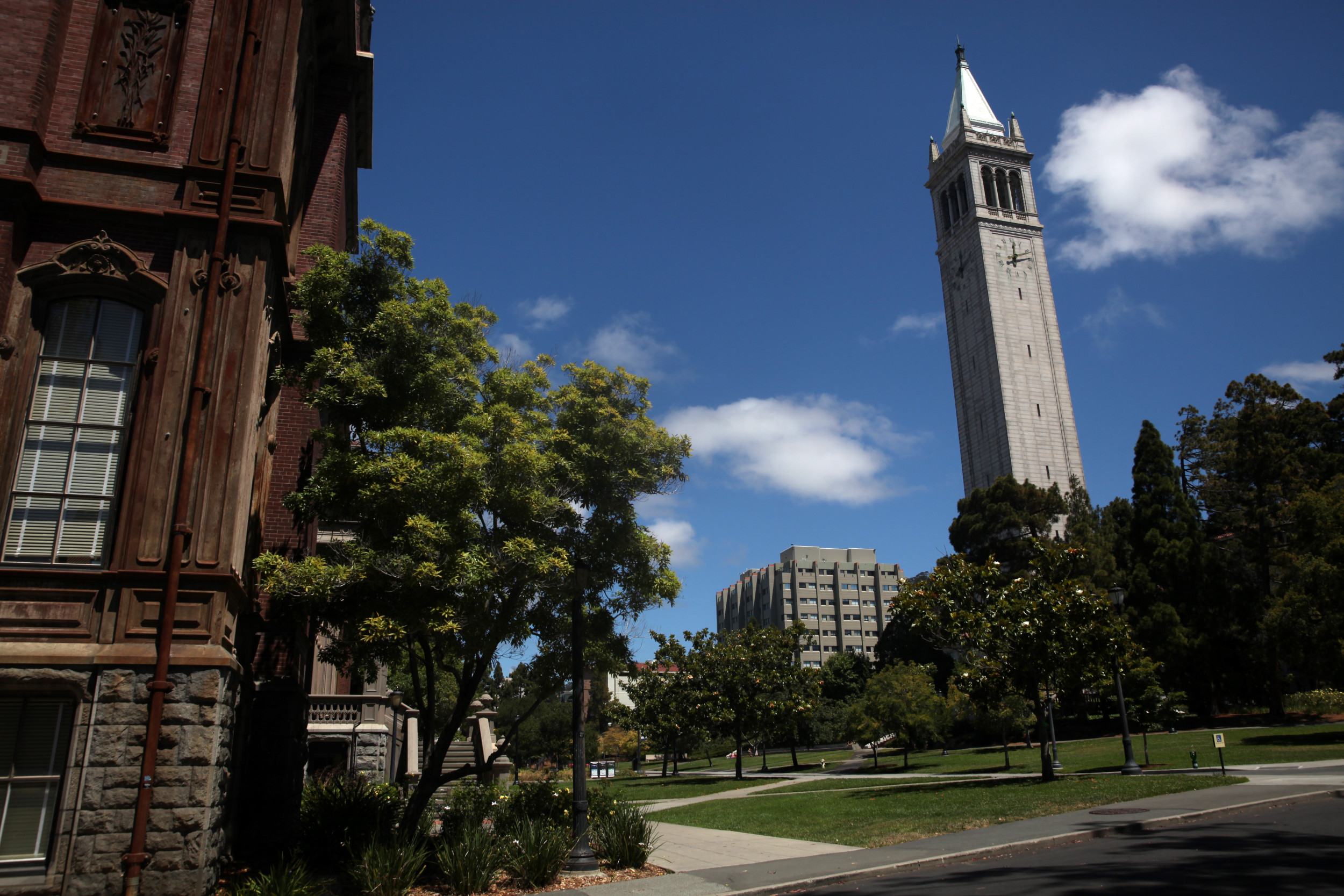The Vilification of Stepmothers
- Marjorie Taylor Greene was recently criticized for drawing a distinction between stepmothers and "biological mothers."
- Her comments echoed a centuries-old stereotype of the "wicked stepmother," more recently amplified by Disney cartoons and movies.
- Experts have told Newsweek that stepmoms are often "the unsung hero of a blended family"—and it's time they got a better deal.
- Greene has responded to the criticism, telling Newsweek that those unhappy with her use of the term are "missing the point."
From Ancient Greece, to the Brothers Grimm, to Disney fairy tales, stepmothers have had a bad press. Time and again, they are portrayed as sinister, uncaring or even downright evil.
It's a stereotype that Marjorie Taylor Greene seemed to be echoing recently when she apparently suggested they're not "real" mothers.
The comment came during a House of Representatives subcommittee hearing where teachers' union leader Randi Weingarten, a "mother by marriage," was described by Greene as "not a biological mother."
The Georgia Republican was criticized online, and the creator of a community for stepmothers has also condemned her, telling Newsweek her remarks were "ignorant" and "hurtful."
Yet Greene's comments did not come out of nowhere. Notably, Disney movies aimed at children have repeatedly pushed the notion of a wicked stepmother, including Snow White, Cinderella, Tangled and others.
And it's not just cartoons. Think Meredith in The Parent Trap, Queen Narissa in Enchanted and Angelina Jolie's title character in Maleficent. Then there's the 1972 movie The Stepmother—in which the title character seduces her husband's son—and 1989's PG-13 Wicked Stepmother, a black comedy about a witch featuring Bette Davis in her last film role. The list is almost endless.
Just why are stepmothers vilified so? Is it the media's fault? What's life like for American stepmoms today—and what can be done to change outdated attitudes about them?

What Marjorie Taylor Greene Said About Stepmoms
At the end of April 2023, Representative Greene was speaking at a subcommittee hearing on COVID-19. She was addressing Weingarten, president of the 1.7-million-member American Federation of Teachers (AFT), who was there to testify about school closures during the pandemic. During the hearing, Greene questioned whether Weingarten was a doctor or a "biological mother."
"Are you a medical doctor?" Greene asked Weingarten.
"I am not," was the reply.
"Are you a mother?" Green asked.
"I am a mother by marriage," Weingarten said.
"By marriage, I see."
Later on, when speaking to Weingarten, Greene made her case against the AFT president by stating she was "not a medical doctor. Not a biological mother, and really, not a teacher."

Kristen Skiles, a certified stepparent coach and creator of the website stepmomming.com, said that Greene's words were hurtful.
"In my opinion, it was an ignorant comment. Of course there is a difference between a stepmom and a biological mom, but mothering is a heart act, not a bodily one. To imply that a stepmom is not a 'real' mom is ignorant at best, and incredibly disrespectful and hurtful at worst," Skiles told Newsweek.
Greene later shared clips of the hearing on her own Twitter channel, and while the reactions varied, some were furious about the insinuations of what constitutes a mother.
"You are seriously going to double down on her NOT being a mother??? A step parent or an adoptive parent is NOT a parent?," one user wrote. "You owe step mothers and adoptive mothers an apology. They are REAL mothers," said another.
I agreed with everything you said except denying that she was a mother. By genetics or marriage it shouldn't matter. Lots of adopted kids out there.
— Beau Leyvand (@BeauLeyvand) April 26, 2023
Even people who seemingly agreed with Greene politically took issue with her.
"I agreed with everything you said except denying that she was a mother. By genetics or marriage it shouldn't matter. Lots of adopted kids out there," wrote Beau Leyvand, a father of three.
Greene was also criticized by former Republican Party chair Michael Steele, who said she needs to "shut the you know what up and step back."
Greene's office responded to Newsweek's request for comment and sent through a statement.
"You are entirely missing the point of Congresswoman Greene's remarks and simply buying into a ridiculous left-wing Twitter narrative," the statement reads, regarding the backlash.
The statement continued, "Congresswoman Greene was simply pointing out that Weingarten has never made education decisions for her children and hasn't been a teacher for over 26 years. Weingarten's wife, Sharon Kleinbaum's step-children were adults when Weingarten married Kleinbaum."
The Disneyfication of Stepmothers
While there are a number of harmful representations of stepmothers in classic tales, movies and TV shows, Disney seems to be one of the principal recent culprits.
However, the House of Mouse wasn't the instigator of this trend, Skiles said.
"It turns out that the 'wicked stepmother' trope dates back as far as Greek mythology. We've been inundated with the narrative that stepmoms are evil for ages, and it has become deeply ingrained in our society."
An evil stepmother archetype can be found in an abundance of literature over the centuries, even millennia. In the Bible, there's Sarah, the matriarch who birthed a son for Abraham, and then cast his other children out to die so that her son Isaac didn't have to share inheritance.
Roman figure Livia Drusilla has been described by some as the "ultimate evil stepmother." She married Emperor Caesar Augustus in 27 B.C., and is reputed to have been responsible for the deaths of several of Augustus' relatives, including his grandson.
Predating even that is the Greek mythological figure of Medea. She married the King of Athens, Aegeus, bore him a son and attempted to poison Aegeus' previous son, Theseus.

Skiles acknowledged that evil stepmothers do exist—just as evil mothers, fathers and stepfathers exist. "The majority of stepmoms are not evil," Skiles said. "I've had the privilege of working with hundreds of stepmoms directly through coaching and thousands indirectly through my platform."
The research backs up Skiles' stance. Data from the National Longitudinal Study of Adolescent to Adult Health showed that a resident stepmother forms a stronger bond with a non-biological child than a non-resident biological mother.
Of the 294 people with a stepmother surveyed, 35.9 percent suggested they had an "extremely close" relationship with their resident stepmother, while 31.5 percent said the same of the non-resident biological mothers. At the other end of the scale, 13.6 percent said they were "not at all close" with a non-resident biological mother, while just 1.8 percent classed themselves as "not at all close" with their resident stepmother.
Despite her own personal experience as a stepmother, and with other stepparents, Skiles said that she had been affected by the negative stigma attached to the role.
She cited a recent example on Facebook Marketplace where a potential buyer must have seen her stepmomming.com content online. "She sent back a lengthy message attacking my looks, my marriage, and my relationship with my stepdaughter. Something about my support of stepmoms triggered something deep within her, and she lashed out at me," Skiles said.
Challenges for a Stepmom
There are more stepmothers in America than you might think. While census figures on the number of stepparents from the current decade aren't available, between 2011 and 2015 surveys by the Pew Research Center found that 13 percent of adults in the U.S. (29-30 million) were stepparents. It found that 12 percent of women (14 million) were stepmothers to children below the age of 18, but if this was widened to include stepmothers to adult children, that figure would likely double. As Greene's team pointed out to Newsweek, Weingarten's stepchildren were adults when she became their stepmother.
Florence Ann Romano, an author and childcare expert of 15 years, agreed that for these millions of women in America, the role of a stepmother isn't helped by their portrayal in the creative media.
"I have witnessed just about every family dynamic you can think of. Stepmothers, I do agree, are often depicted as villains in film and literature." Romano told Newsweek. "The truth is, their job comes with many layers, expectations, and challenges."
"Blending households, in any regard, takes time and patience," she added. "The line a stepmom walks can be shaky, tenuous, and unintentionally hurtful. While the stepmom is not the parent, they are an authority figure. Straddling the line of friendship and authority with stepchildren is very delicate and it takes a great deal of time to establish trust with the children (depending on their ages)."
Romano suggested that anyone struggling to adjust to the role as a stepparent should reach out to others in a similar situation.
"Being a stepparent requires a village the same way any other parent does—regardless of the family structure," Romano said.
California-based psychotherapist John Sovec agreed that stepparents, regardless of gender, often get a raw deal.
"Most step-parents are put in an almost impossible position when they merge into a new family situation," he told Newsweek. "Many kids feel anger and frustration at having to make room for a 'replacement parent'. It is important for merging families to create the time and space for new bonds to form as parents and kids develop into a new family dynamic."
Thanks to campaigners like Skiles, the attitudes and misconceptions about stepparents can change over time, but it's important to call out outdated attitudes, she said.
"It's imperative that when comments like Marjorie Taylor Greene's to Ms. Weingarten are made, we immediately correct them and defend the invaluable role of the stepmom," she said.
"We can't continue to sit by quietly while the stepmom is continually made out to be the villain, when in reality, she's often the unsung hero of a blended family."
Stepmomming.com is a multimedia platform dedicated to normalizing and validating the stepmom experience. You can visit the community on its website, social media, podcast and Facebook support group.
Update 05/06/23, 04:10 a.m. ET: This article was updated with a statement from Marjorie Taylor Greene's office.








